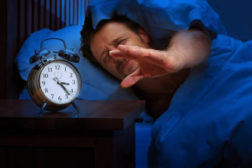Home » Keywords: » sleep disorder
Items Tagged with 'sleep disorder'
ARTICLES
Study confirms severe health effects of night work
"Probably" heightens cancer risk
July 11, 2016
Something else to worry about
FAA issues new guidelines on sleep apnea in aviation
February 5, 2015
Become a Leader in Safety Culture
Build your knowledge with ISHN, covering key safety, health and industrial hygiene news, products, and trends.
JOIN TODAYCopyright ©2025. All Rights Reserved BNP Media.
Design, CMS, Hosting & Web Development :: ePublishing





